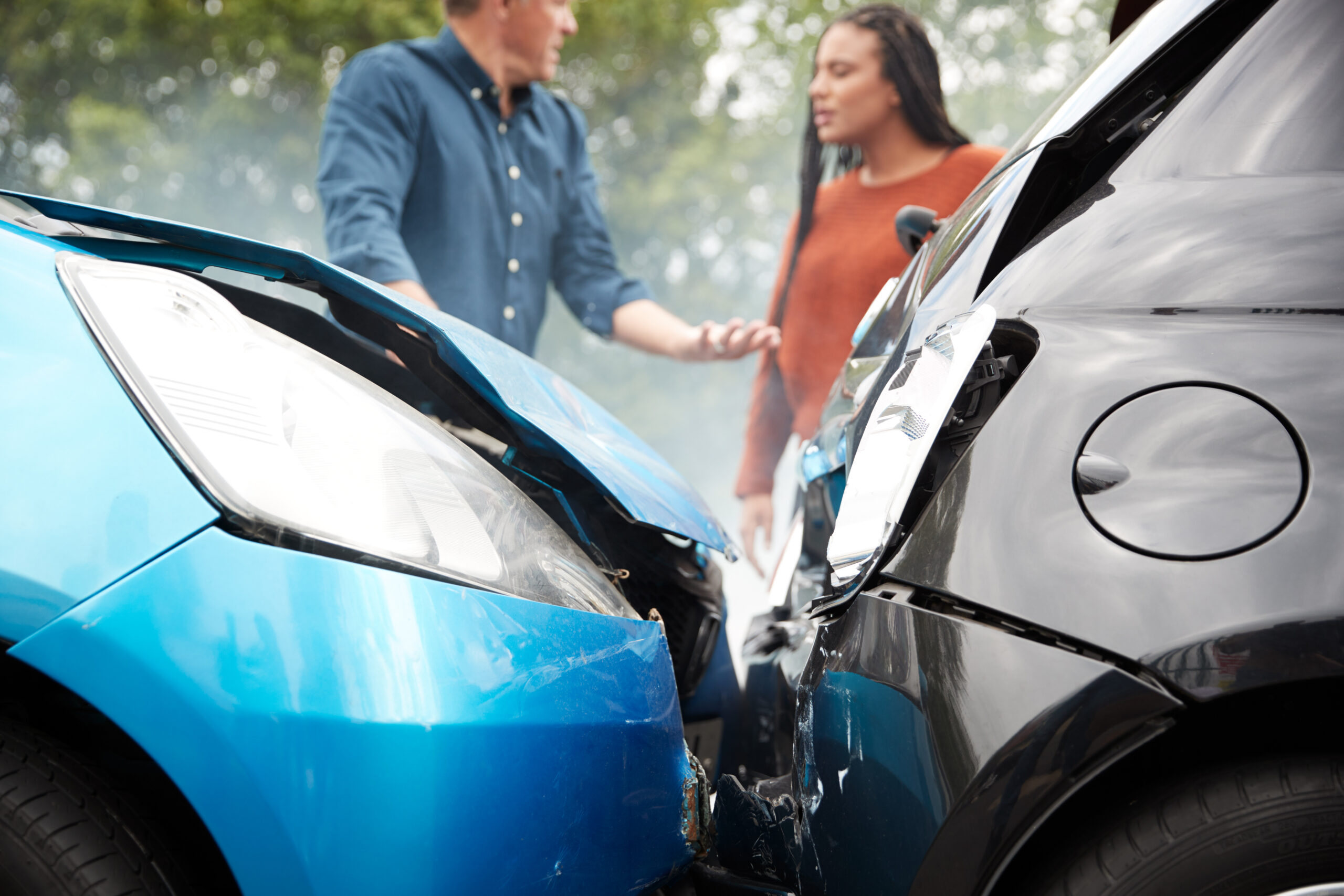
Table of Contents
Rear-end car accidents, sometimes also known simply as rear-end collisions, occur when one vehicle crashes into the back of another vehicle. It’s one of the most common types of car accidents, both in the Miami area and across the country. It typically happens when the following vehicle, the vehicle in the back, fails to stop or at least slow down in time to avoid hitting the vehicle in front. This type of accident can range from minor fender benders to more serious collisions. It depends on the speed, force, and size of the vehicles involved.
In most cases, the driver of the rear-ending vehicle is considered at fault. This is because they are expected to maintain a safe following distance and be prepared to stop or slow down in response to the actions of the vehicle in front. However, there are situations where the driver of the front vehicle might share some responsibility, such as suddenly slamming on their brakes without a valid reason.
It’s important for drivers to maintain a safe following distance, stay attentive to the road, and practice defensive driving to reduce the likelihood of being involved in or causing a rear-end car accident.
What Causes Rear-End Collisions?
Common causes of rear-end collisions include distracted driving (such as texting while driving), tailgating (following too closely), speeding, adverse weather conditions, sudden stops by the front vehicle, and impaired driving. There is no one definite cause of rear-end collisions. If you want to bring a case against the other driver, you’ll need to prove they were at fault.
What Are Potential Effects of Rear-End Collisions?
Rear-end collisions can have a range of effects, depending on the speed of the collision, the size of the vehicles involved, and the use of safety features like seatbelts and airbags. That being said, some potential effects of rear-end collisions include:
Vehicle Damage
In minor rear-end collisions, vehicles might only sustain cosmetic damage, such as scratches or dents. However, in more severe accidents, the rear of the front vehicle and the front of the rear-ending vehicle can experience significant damage.
Whiplash Injuries
Whiplash is a common injury in rear-end collisions. It occurs when the force of impact causes the head and neck to rapidly jerk forward and then snap back, leading to strain or injury in the neck muscles and ligaments. Symptoms of whiplash can include neck pain, stiffness, headaches, and even cognitive difficulties.
Head and Brain Injuries
In more serious rear-end collisions, occupants of the vehicles might experience head injuries, which can range from mild concussions to more severe traumatic brain injuries (TBIs). These injuries can have lasting effects on cognitive function, memory, and motor skills.
Spinal Injuries
While less common, rear-end collisions can cause spinal injuries, such as herniated discs, fractures, or other spinal cord-related injuries. These injuries can result in chronic pain, limited mobility, and even paralysis, depending on the severity.
Chest and Abdominal Injuries
The impact from a rear-end collision can also lead to injuries to the chest and abdomen, including broken ribs, internal organ damage, and bruising. Airbags and seatbelts can help mitigate some of these injuries, but they are not always completely preventable.
Psychological Effects
It isn’t just physical. Being involved in a car accident, even a relatively minor one, can lead to psychological effects such as anxiety, post-traumatic stress disorder (PTSD), and driving phobias. These effects can impact a person’s ability to drive or even ride in a vehicle comfortably.
Property Damage
In addition to vehicle damage, rear-end collisions can result in damage to property such as roadside structures, guardrails, and traffic signs.
Legal and Financial Consequences
No surprise here! Rear-end collisions often involve determining fault and liability for damages. The at-fault driver might be responsible for covering medical expenses, vehicle repairs, and other related costs. Legal issues can arise if disputes over liability occur.
Impact on Daily Life
Many people don’t realize the lasting effect a really simple accident can have on a person. Injuries resulting from rear-end collisions can affect a person’s ability to work, perform daily tasks, and engage in recreational activities. Recovery time can vary significantly based on the severity of injuries.
Contact a Rear-End Collision Attorney
Car accidents lead to tangible and intangible losses, stress, anguish, and questions about what to do next. If you’ve been hurt or are facing bills to fix your vehicle, it’s time to act. It’s important to seek medical attention after a rear-end collision and then bring on the services of a Miami car accident lawyer. AccidentLawFirm.com has been helping injured victims of South Florida for over a decade. Our law firm handles a variety of cases, including rear-end collisions. Call 786-882-2038 to schedule your consultation at our law firm. You don’t have much time, as valuable evidence is lost every day.












